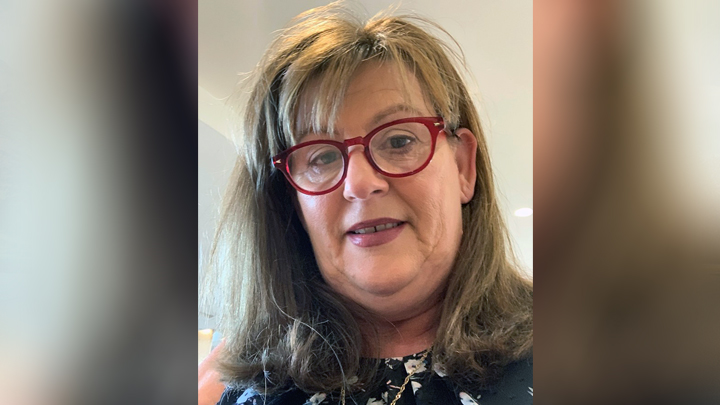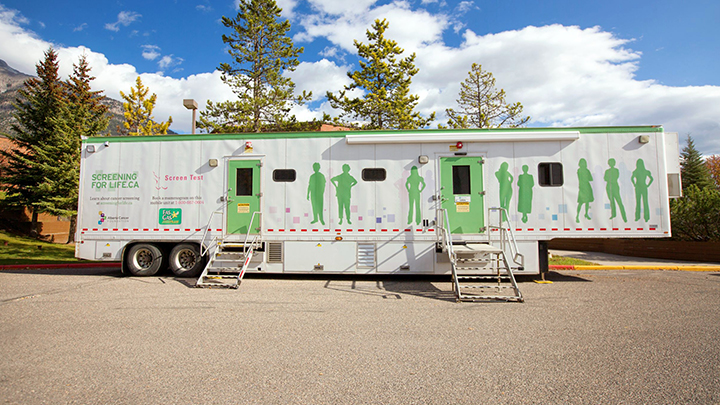
November 1, 2021

Valerie Murgatroyd says she’s incredibly grateful for the access to Screen Test’s mobile mammography unit when it visited her community. "If it hadn’t been for Screen Test, I might never have bothered getting a mammogram." Photo supplied.

September marked the 30th anniversary of Screen Test Mobile. This trailer reduces barriers as it provides a critical service by bringing breast cancer screening to women in 120 rural and remote communities across Alberta, including 26 Indigenous communities. Photo supplied.
Story by Shelley Boettcher & Melissa Schock
After Valerie Murgatroyd moved to Redwater last year, she saw an ad for an upcoming Alberta Health Services (AHS) Screen Test Mobile visit to her community. Although she had no symptoms, she decided to book an appointment for a screening mammogram.
She very nearly cancelled — the day arrived blustery and cold — but she went regardless. Shortly afterwards, she found out she had breast cancer.
After her quick referral to the Cross Cancer Institute, the months that followed were filled with appointments, surgery, radiation and chemotherapy.
Currently on medication to control the cancer, Murgatroyd is getting her life back to normal. “I am a cancer survivor, but I don’t think of myself as someone with cancer anymore,” she says. “And I’m fine with that.”
Breast cancer is the most common cancer found in women. About one in seven women in Alberta will have breast cancer in their lifetime.
“Screening mammograms (x-rays of the breasts) are used to find early signs of cancer that are too small to be felt by you or your healthcare provider,” says Joan Hauber, manager of Screen Test.
“If you’re 50 to 74, it’s important to get screened regularly. This is the best way to find breast cancer early, before you have any symptoms, and when treatment may work better.”
Murgatroyd says she’s incredibly grateful for the access to Screen Test’s mobile mammography unit when it visited her community. She’s also made it mission to share her experience with other women in her community, urging them to book their own appointment the next time Screen Test comes to town.
“If it hadn’t been for Screen Test, I might never have bothered getting a mammogram,” she says. “I’m so thankful for it.”
September marked the 30th anniversary of Screen Test Mobile. This critical service helps reduce barriers by bringing breast cancer screening to women in 120 rural and remote communities across Alberta, including 26 Indigenous communities.
Since the first mobile screening clinic in 1991, Screen Test has completed more than 308,500 screening mammograms and found 1,845 cases of breast cancer.
Breast cancer screening continues to be important, even during the COVID-19 pandemic. Enhanced health and safety measures are in place to keep patients and staff safe and to help prevent the spread.
“Don’t wait. Go now. Go regularly,” Murgatroyd says. “Get your mammogram. It’s so important that, as a woman, you know what’s happening to your body.”
Visit screeningforlife.ca to learn more about Screen Test Mobile.